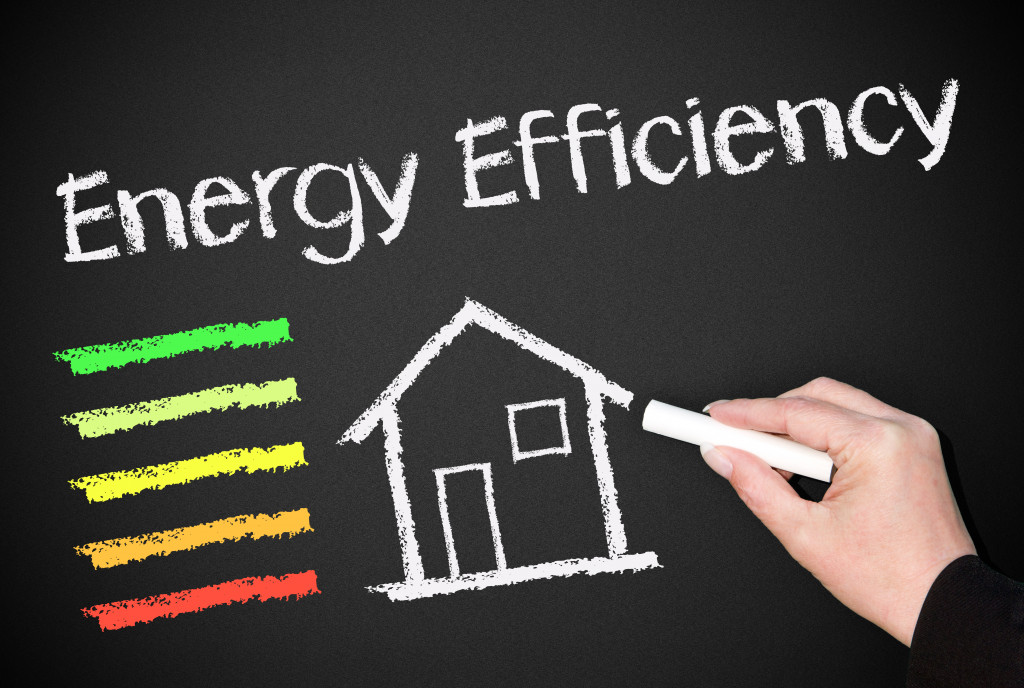- Installing a programmable thermostat can help adjust the home temperature using less energy.
- LED and CFL light bulbs are more efficient and have a longer life span than traditional incandescent bulbs.
- Unplug unused electronics to reduce phantom energy loss.
- Utilizing natural ventilation when possible is an effective way to reduce energy consumption.
- Home energy assessments can provide detailed information on current consumption and suggest ways to increase efficiency.
Making your home more energy efficient can bring various benefits, from reducing the cost of utilities to making your living space more comfortable. It’s also better for the environment — by conserving energy, you can help reduce greenhouse gas emissions and their impact on climate change. Here are five tips to help you make your home more energy efficient.
1. Install a Programmable Thermostat
Installing a programmable thermostat is an easy way to slash your home’s energy consumption without sacrificing comfort. With a programmable thermostat, you can effortlessly and precisely set your home’s temperature for various times of the day. This means your home is kept comfortable while using less energy overall.
2. Change Your Light Bulbs
Changing your light bulbs to energy-efficient ones, such as LEDs and CFLs, is a simple and inexpensive way to reduce your home’s energy consumption. Although the initial cost of these light bulbs may be higher than traditional incandescent bulbs, they last longer and use much less electricity in the long run — saving you money on your utility bills. They emit less heat, which helps keep your home cooler in the summer. With the variety of styles and designs available, energy-efficient light bulbs can create a modern look for any room.
3. Reduce Phantom Energy Loss

Phantom energy, or stand-by or vampire power, is the electricity devices consume even when not in use. This sneaky phenomenon can account for up to 10% of your home’s total energy consumption, costing you money and wasting resources. To reduce this loss, unplug appliances and electronics when not in use, or plug them into a power strip and switch it off when not in use. Some electronic devices have “sleep” settings that allow you to conserve energy without turning the device completely off. Make use of these settings whenever possible.
4. Utilize Natural Ventilation
When the weather permits, use natural ventilation as an alternative to air conditioning. Natural ventilation is an effective way to reduce energy consumption while still keeping your home comfortable.
Here are ways to have natural ventilation:
Make the Most of Your Windows
Using your windows can be an effective and energy-efficient way to cool your home during cooler weather. Start by opening up all your windows, especially on opposite sides of the house, so air can circulate throughout the space more easily. You should also consider installing window screens or blinds to help reduce direct sunlight from coming in.
Utilize Fans
Using fans can also be a great way to cool your house without turning on an air conditioner. Ceiling fans, for example, are especially effective for circulating air and creating a cooling effect throughout the home. In addition to ceiling fans, you can use portable fans to increase airflow in specific areas of the house, such as a bedroom or living room.
Maximize Cross Breezes
If your home has an open floor plan, you can maximize cross breezes by strategically placing furniture and other items so air can flow more easily through the space. Consider opening up any doors that lead to other rooms in the house, such as closets or bathrooms, to ensure air can circulate throughout the entire home.
Install Exhaust Fans

Installing exhaust fans in your home can help reduce humidity and encourage air circulation from outside. You should also consider installing an attic fan if you have one, as this can help keep your home cool and reduce energy costs.
Using natural ventilation whenever possible can significantly reduce the energy needed to cool down your house. This will save money on bills and benefit the environment by reducing energy consumption.
5. Consider an Assessment
You should consider a professional home energy assessment for an even more comprehensive approach to home energy efficiency. This will provide detailed information on your home’s current energy consumption and advise how to reduce it. An experienced professional can inspect insulation, measure air leakage, check ventilation systems and suggest ways to increase efficiency. Plus, they can identify and repair any potential problems affecting your home’s energy efficiency.
Final Thoughts
Making your home more energy efficient doesn’t have to be difficult or time-consuming. By following the five simple strategies outlined above, you can save money and reduce your environmental impact with minimal effort. Start taking steps today to make your home a greener, more sustainable place.




